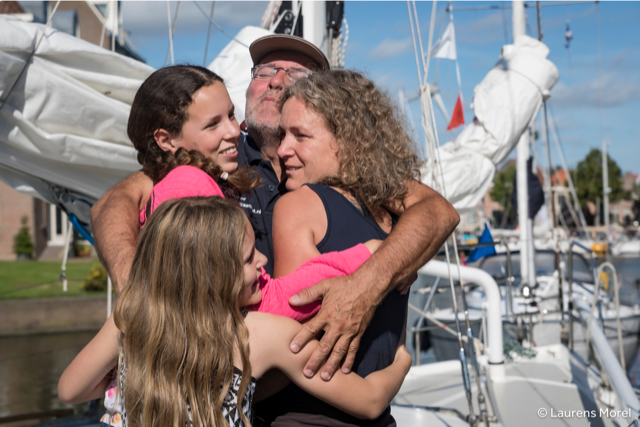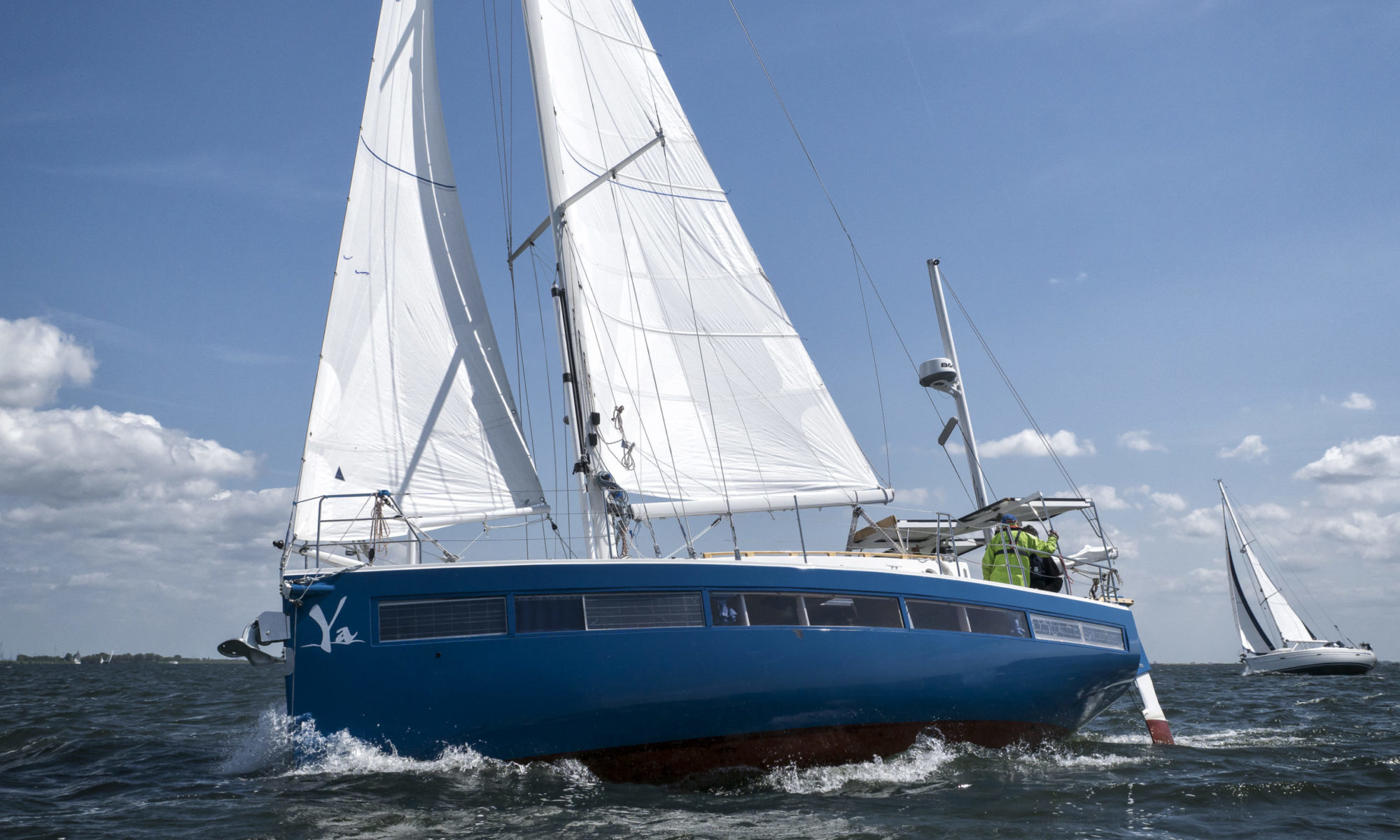It was in the early 19h century that the first coaches were motorized. Inventors like Thomas Davenport tried it out. He was too early, because there was no electric distribution system at that time and he went bankrupt.
The Prussian Moritz von Jacobi created the first real rotating electric motor in May 1834. He built one for a ship and it appeared to be remarkably strong; it could bring 14 people to the other side of a wide river.
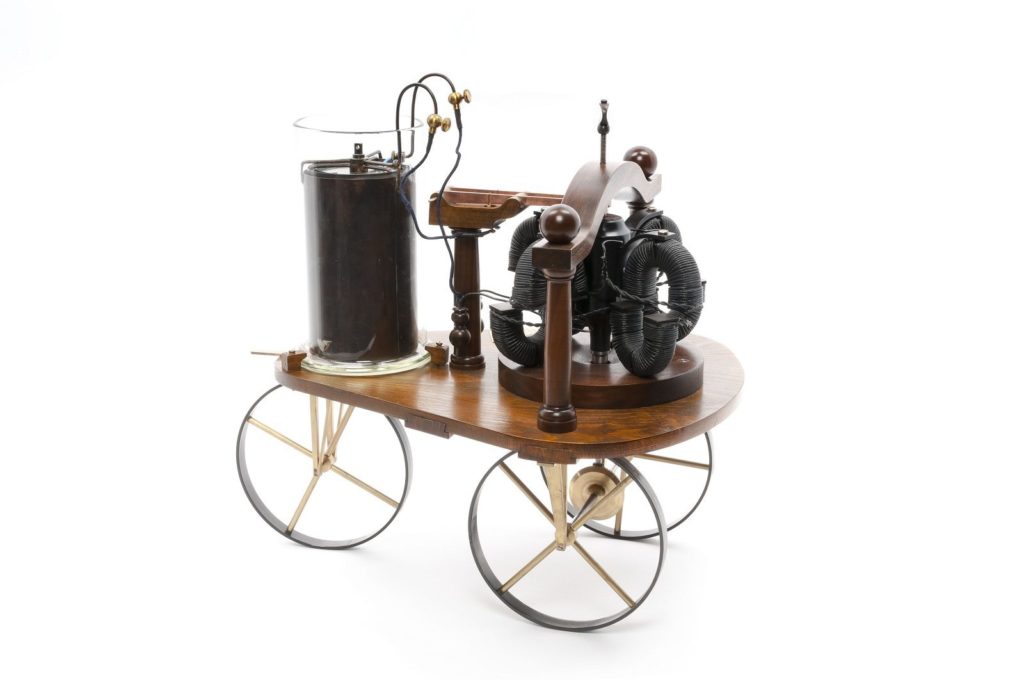
For the development of the electric motors, we have to look at cars. The boats just follow. It took until about 1890 for the first electric driven cars to be built in mass production. These cars were popular: especially the ladies liked them, because they were clean, silent, endurable, reliable, comfortable and simple to use. And they did not stink. They also required less maintenance compared to petrol engines. If you would ask a physicist to choose an efficient way to make a wheel turn, he would choose the electric motor as the best option and the explosion motor as the worst. The petrol engine of 1900 had a maximum efficiency of hardly 20%.
But, the petrol engine had one strong advantage: you could travel longer distances with it. Since ages people have the habit to travel 1 ½ hour a day, and you don’t change that. And since 1900 the infrastructure of roads became much better, but the electricity net remained only good in the populated areas. So most people accepted that the petrol engine stank, was noisy, dirty, not endurable, uncomfortable, and complex. They also accepted that it was difficult to use, needed much maintenance, took a lot of space, and was very inefficient by its nature.
Funny thing is, the complexity of the explosion motor seemed to be an advantage. This tendency to complexity is typically a man’s thing. And the neat ladies’ preferences? Well, women, you didn’t listen to them anyway.
So: bye, bye to electric cars: since 1910 the explosion motor (petrol, then also diesel) took over.
The engine in a boat
First a word of deep respect for the developers of the petrol and diesel engines. They did a tremendous innovation job the last 120 years. From the overhead camshaft to the 16 valve system, from the injection motor to the turbo technology, it is fantastic. So much added technologies and even the whole motor space became smaller and smaller. Not to forget all the software put into make everything working smoothly and efficiently, and with less and less maintenance. Nowadays, with a lot of added technology and computerising, it is possible to make the explosion engine with a near 50% efficiency. But the thing has become very complex: if there is a defect, even mechanics need computers to tell them what’s wrong and how to repair it.
The electric engine has not changed, or not dramatically. It is still as simple as it ever was. In a boat they have an efficiency of about 85 or 90%.
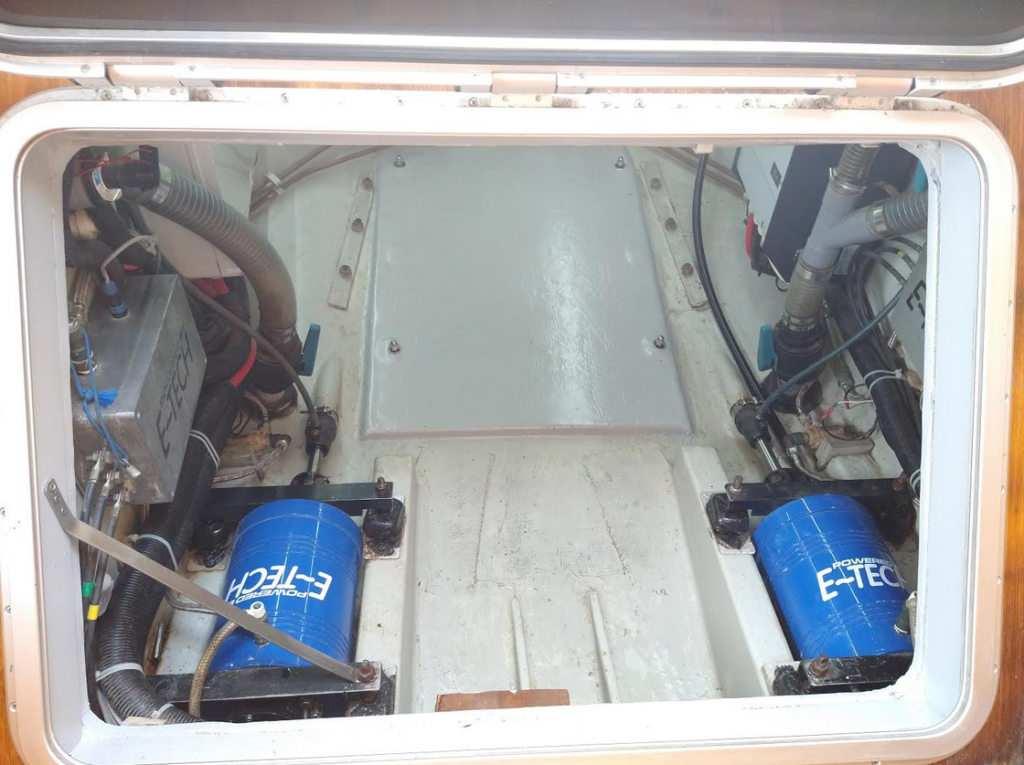
What is on a skippers mind?
On board of leisure yachts there are still diesel engines and more and more I wonder why. Most sailors I know, express their love for the KISS formula. Keep It Simple, Stupid! But they all have diesel engines. Why? They don’t see it as a problem to take a 2 days course on “maintaining your diesel engine”, on the contrary, they like it. While a maintenance course of an electric engine is not necessary, because there is hardly any maintenance, it is reliable by itself. So why this tendency to complexity? When I ask them, they even try to explain that their Yanmar or Penta or Perkins is not a complex engine.
Did you know that a diesel engine has its efficiency on only a small range of power and rotation? Mostly it is efficient somewhere between the 4 and 6 knots speed, with the sails down and on flat water. The electric engine is efficient in nearly its full range (it is only the propeller that could be limited in its efficiency). For example, when you manoeuvre in a harbour or lock, you must give speed with the throttle shortly strongly open. Such a ‘power blow’ in diesel engines is only possible with a lot of smoke, so very inefficient and bad for nature and for you. A power blow with an electric motor is efficient and no harm is done.
A diesel engine should run at least hours, or better: days, or best: weeks. It wears by using it mostly for starts and stops. So I wonder why so many sailors use a diesel engine to come in and out of a harbour, and why they don’t all go for the electric motor.
The only rational advantage I can think of, is the compact energy storage. Especially we leisure yacht skippers, we like to have a lot of motor hours, just in case you need a big range.
But, the range? Well, is this still true? Over the last century a silent revolution has been going on.
The silent revolution of the electric energy storage
Did you know that from 1900 to 2000 the battery silently made a serious development? The energy storage increased a rough 100% (or more) and the endurability increased. Most batteries don’t need maintenance anymore; just a bit of attention is enough. A normal battery life is 6 or more years, and on board of yachts, with a lighter use, this can go up to 10 years or even more.
The most commonly used battery (the lead acid) can be recharged many times. Before 1940 this battery could be recharged from 50 to 100% a couple of hundred times before they stopped holding energy. But nowadays this is more than a 1000 times in this range and they still hold some 60% of their energy.
The last decade the lithium battery shows that the energy storage becomes also lighter in weight. Light enough to put them in cars, such as the Tesla. Problem is that they cannot be extinguished when on fire. You don’t want such batteries on board.
Since some years, the LFP (or LiFePO4, or Lithium Ferro Phosphate) batteries enter the market. They are self-extinguishing. And, they can be recharged over 2000 times from 50 to 100% with hardly any loss of energy content.
A 85Ah AGM battery weighs 25 kilos and a 100 Ah Lithium Ferro Phosphate (LiFePO4 or LFP) battery weighs 10,5 kilos (would be less than 10 if also 85Ah). This means that the batterypack needed for your motor can weigh 2,5 times lighter! And yes, they cost 2 times more, but they last 2,5 to 3 times longer.
You don’t believe it? Check the pictures below.
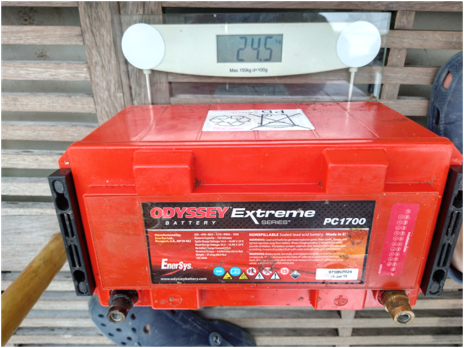
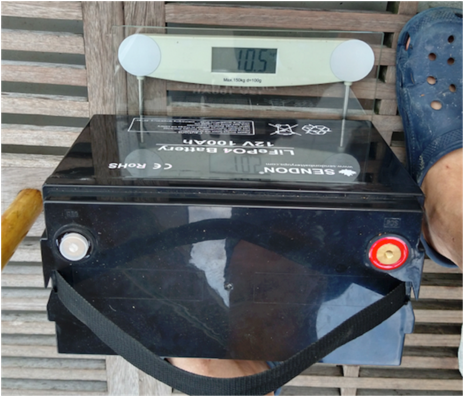
So, yacht owners, cruisers and racers, this is a revolution. It means that you can throw out you big diesel motor and you big tank and replace it for a little electric engine and a battery bank. Take off the top of your 100 litres diesel tank and put LiFePO4 batteries in. Your engine room will look very spacious, but you can fill it with some LiFePO4 batteries. I don’t say you get the same amount of energy back, but you can get pretty close. And your ship might become lighter if you want.
The cruisers have the advantages as shown on top of the article. Especially the experience of the silence is overwhelming. The racers have the extra advantage to make their ship lighter by choosing even less batteries to take with them.
The money thing and the real thing
There is always the money thing. The excuse not to invest. Or, you would sell your ship on short notice. But sorry, to be honest, then sellyour ship. And in terms of money, a leisure yacht is a disinvestment anyhow. It should not be the finance, but the leisure.
But if you still want to talk money, my electric installation was about 8000 Euros more expensive than the diesel installation. Then 3 years later, after my first circumnavigation I met a fellow circumnavigator who tanked 8000 Euros just on diesel to go around the world with his own 9 meters boat. Break even so far. And, he had maintenance. He also had some repairs. And, he was close to renewing or revising his complete engine, while mine just had the first trace of use. And he had sludge in his tank. I have clean batteries.
In case you don’t circumnavigate, and you are just a weekend sailor, then be aware that an explosion motor wears by starting and stopping. Or even worse: they wear by waiting. This will cost you extra maintenance, and the risk of extra repairs ruining your leisure time. An electric motor, when properly installed, can wait without wearing.
I would say, circumnavigator or weekend sailor, if I look at all costs, the electric motor wins.
Finally, the real thing. Many people live for their leisure. This is spending your time with your family, your friends. For us sailors this is sailing, and at the end of the day anchoring somewhere on a quiet spot, being aware that you feel in balance with your environment, enjoying it with your beloved ones, for example your children.
About that balance and about children, once a yachtsman told me his grandchild said, in an anchor manoeuvre: “Your motor stinks and it chokes my future.” Pretty blunt, but she has a point here. This same grandfather had put money aside for her, for her future. Her words made him think. He changed to electric propulsion, put some solar panels as a biminitop over the cockpit. Now he says, he sails so much more in balance with his environment and with himself. And his grandchild is proud and tells everybody about her granddad’s ship. Which is generally the same what the neat ladies in the 19th century said about the electric driven coaches.
